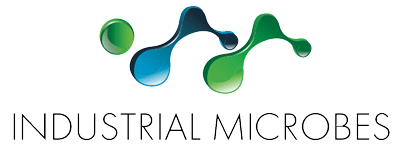Scaling up biobased chemicals made from ethanol
At this year's Bio Innovations Midwest in Omaha on September 24-25, 2024, Noah Helman, Founder & CEO of iMicrobes, shared exciting insights into how ethanol—familiar to everyone as a fuel and ingredient in beer—can also be the best renewable feedstock for chemical production.
Check out the video and presentation’s highlights below.
“Ethanol has been fueling our cars and filling our cups, but its potential to drive sustainable chemical production is even more transformative. We’re just scratching the surface.”
In a world increasingly focused on sustainability, cost-competitive, zero-emissions solutions are key to achieving broad adoption. During his presentation, Noah outlined how Industrial Microbes is transforming ethanol, a renewable resource, into chemicals used in everyday products and how the company is focusing on making biobased zero-emission molecules that are cost-competitive with their fossil fuel alternatives.
Ethanol: A key feedstock:
While ethanol has long been used for food, animal feed, and fuel, Industrial Microbes is pioneering its use as a chemical feedstock.
The company has engineered E. coli to produce poly-3HP through fermentation, where the polymer can accumulate to over 80% of the cell's weight. After fermentation, the process uses thermal decomposition to break down the polymer into acrylic acid, which is then purified via simple distillation.
This streamlined process cuts down on unit operations, reducing both complexity and costs while leveraging ethanol as a renewable feedstock.
The result is a cost-effective, scalable method for producing high-purity biobased acrylic acid.
Breaking down the cost barriers
Acrylic acid is a highly versatile chemical used in products ranging from superabsorbent polymers in diapers to paints, coatings, and cosmetics. However, the current biobased production approaches are costly, hindering widespread adoption. Industrial Microbes’ solution aims to produce acrylic acid at 20% lower cost than the traditional petrochemical process, making biobased acrylic acid a viable alternative for industries ready to adopt sustainable materials.
Carbon-negative potential
The environmental impact is equally compelling. Industrial Microbes’ use of ethanol could reduce carbon emissions by at least 75%, when compared to today’s petrochemical process. By sourcing ethanol from waste streams and integrating advanced production methods, the team envisions a future where chemical production contributes to net-zero and even carbon-negative goals.
“Using our technoeconomic model, we’ve projected that scaling up our process will result in at least a 75% reduction in carbon footprint compared to traditional methods.”
Scaling up: Supported by the Department of Energy and other partners, the team has scaled their operations from lab tests to larger fermentation runs, with a focus on maintaining high yields and reducing costs (check out our blog to know more).
Looking ahead: Collaboration opportunities
Industrial Microbes is eager to work with ethanol producers and industry stakeholders to explore partnerships, co-location opportunities, and integration strategies. These partnerships will help further reduce production costs and bring sustainable, biobased materials to market faster.
If you’re interested in learning more or exploring collaboration opportunities, reach out!
Industrial Microbes at Bio Innovations Midwest




